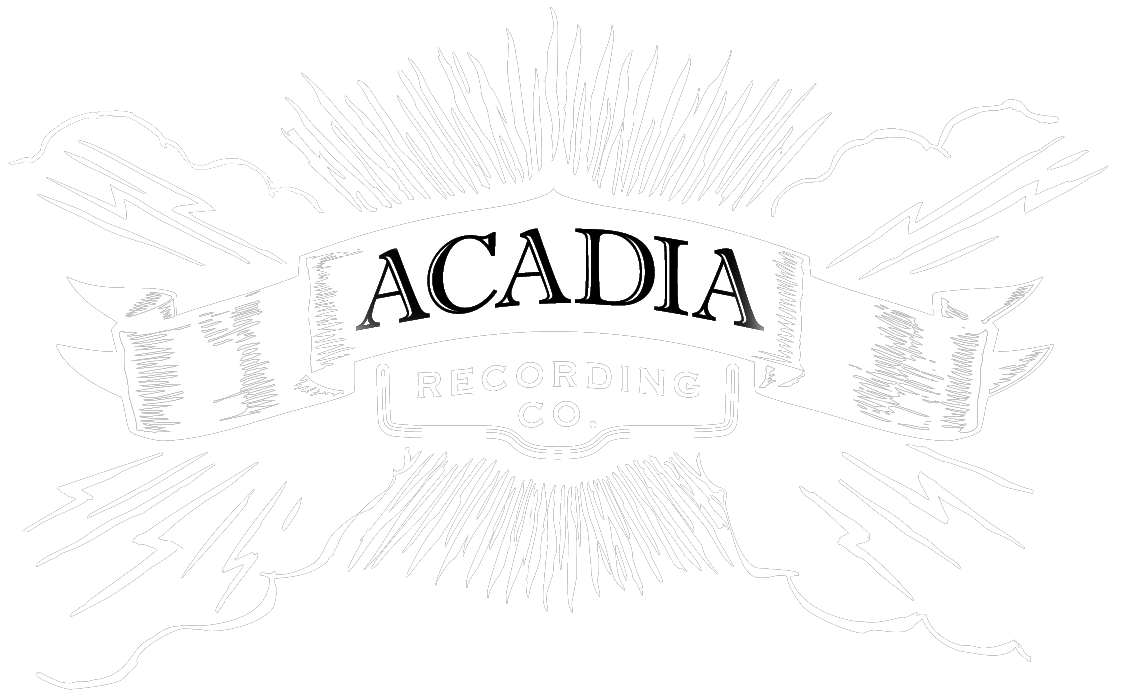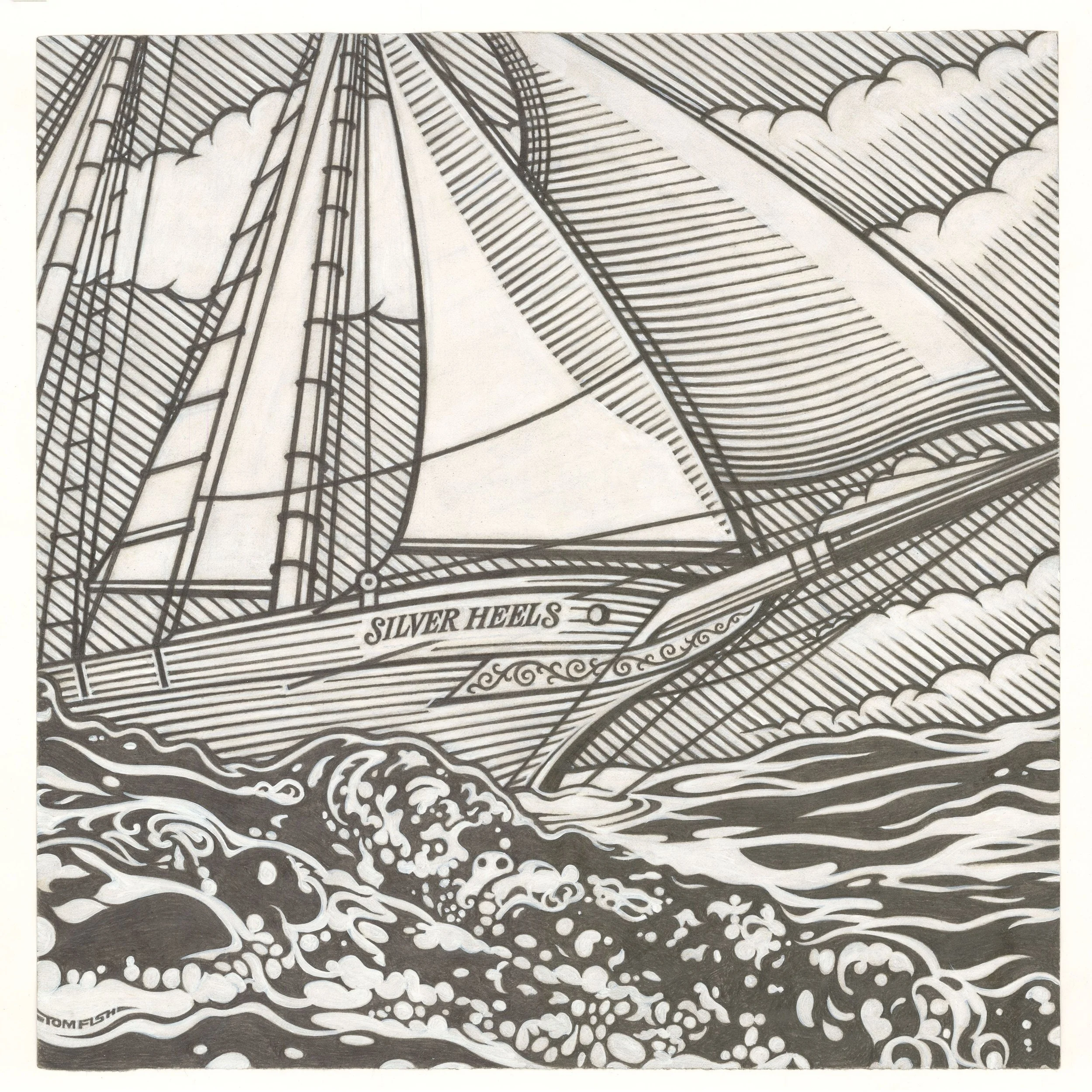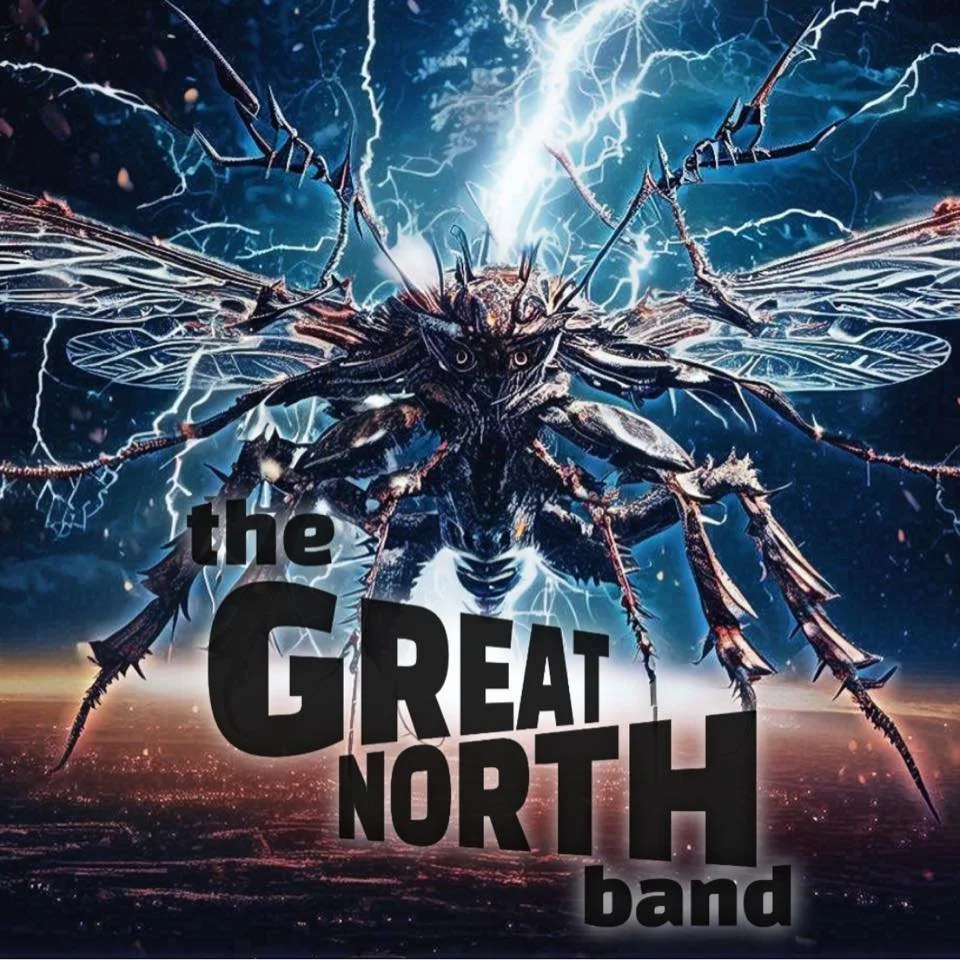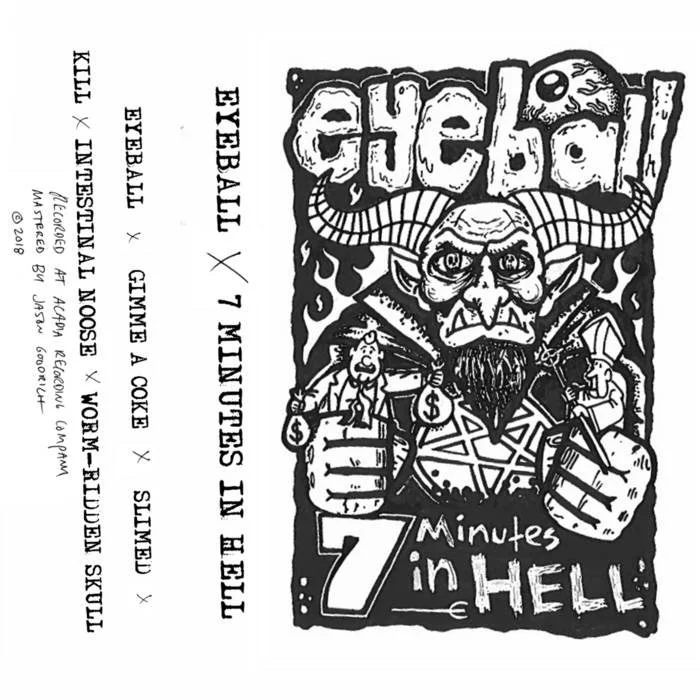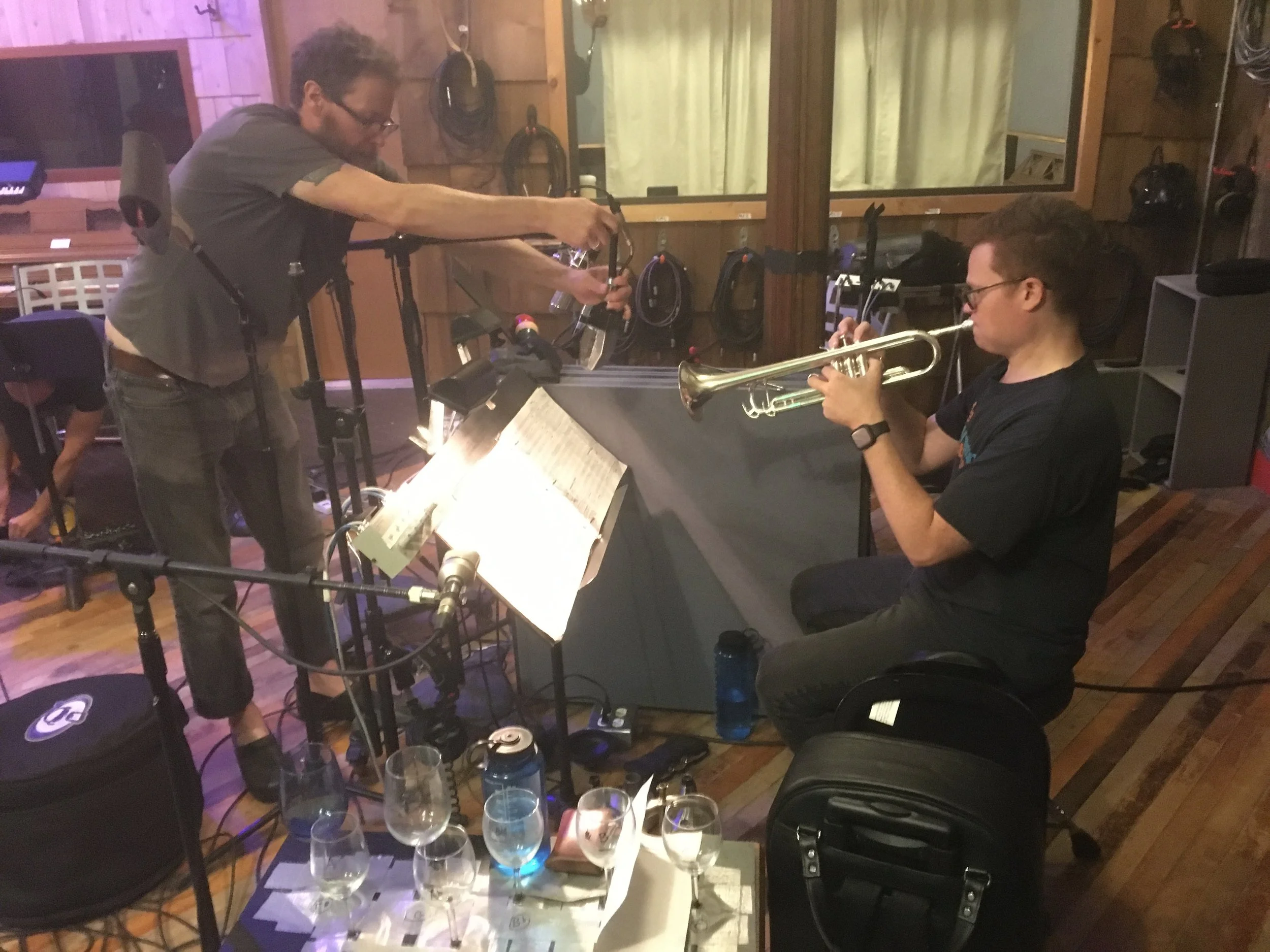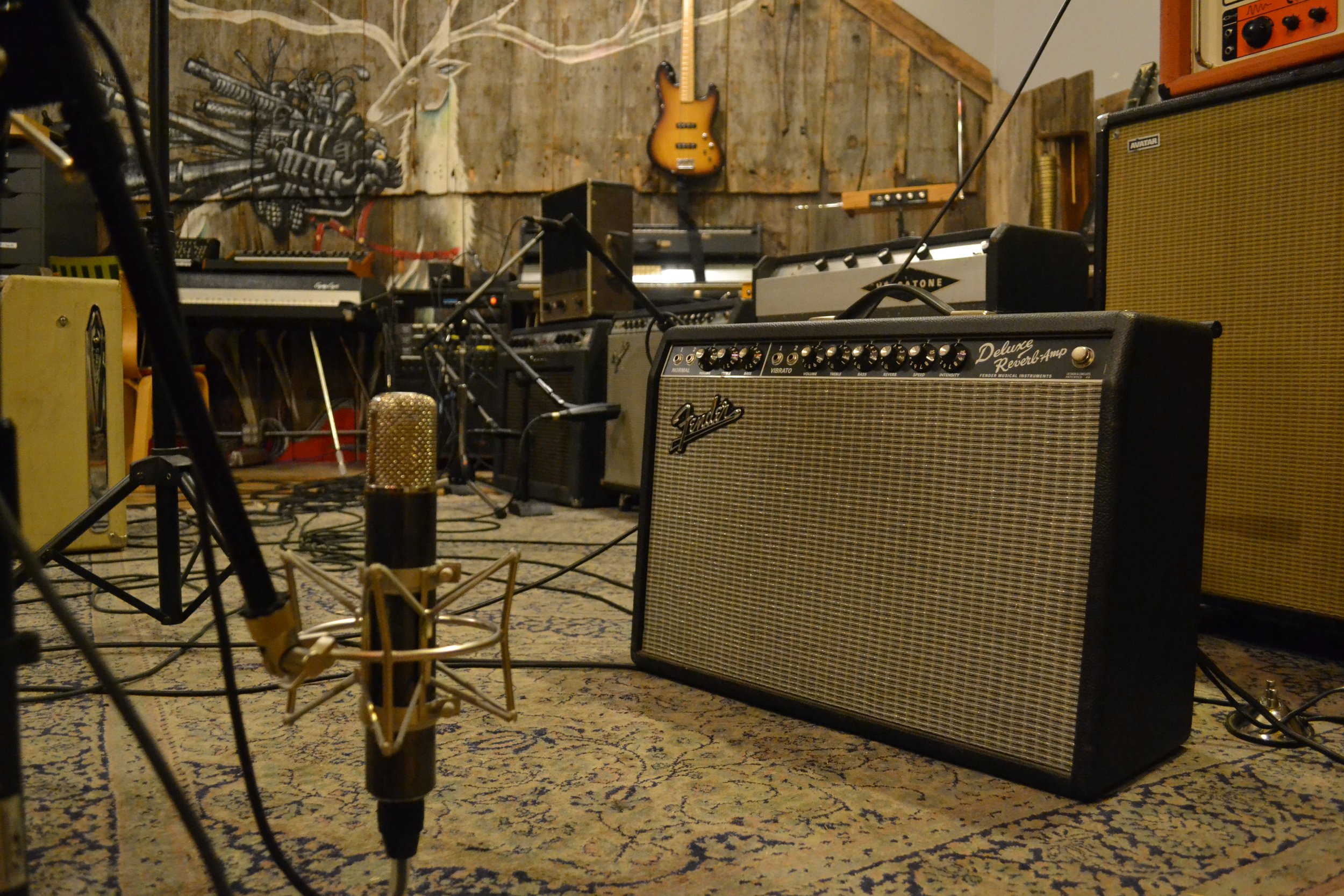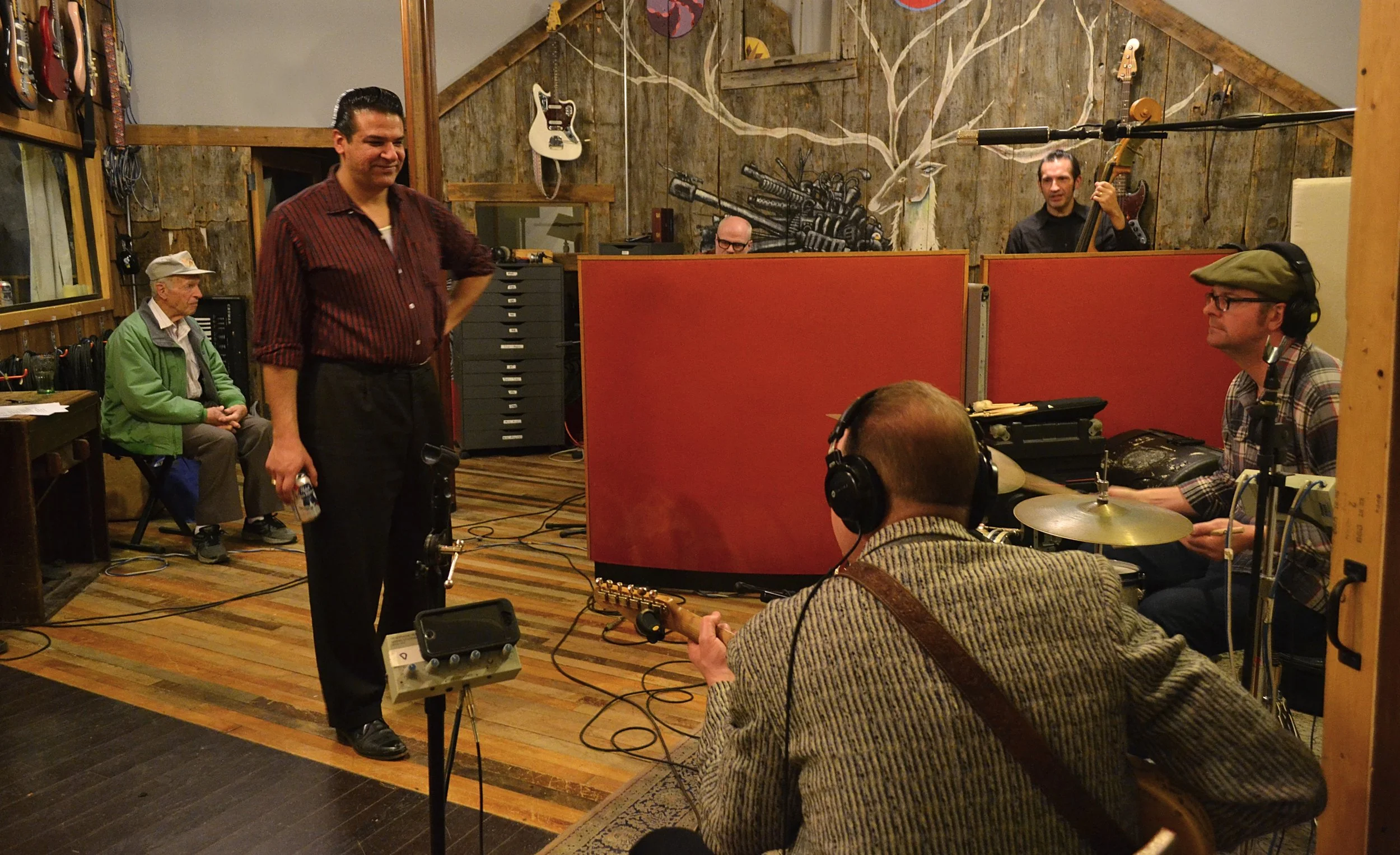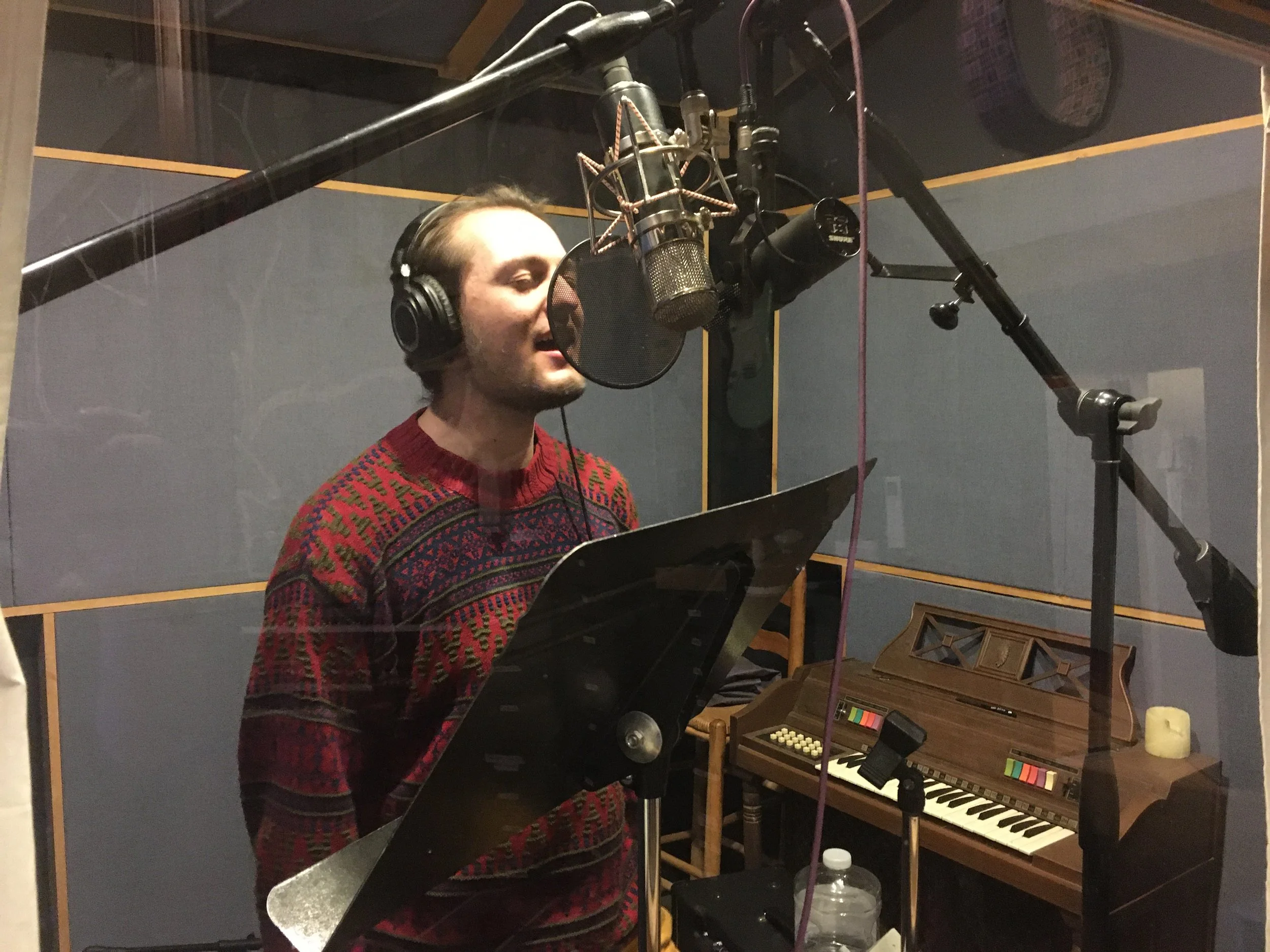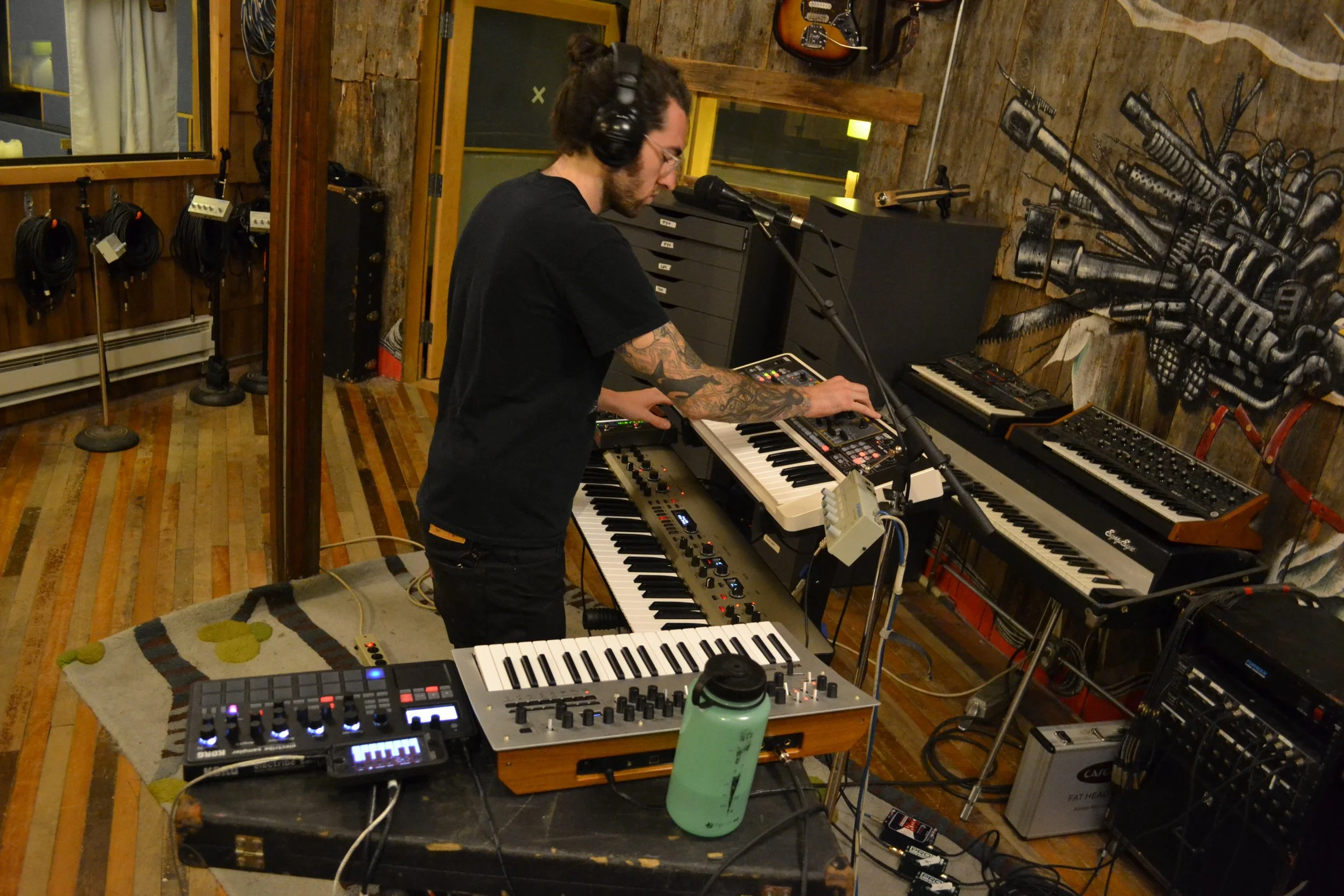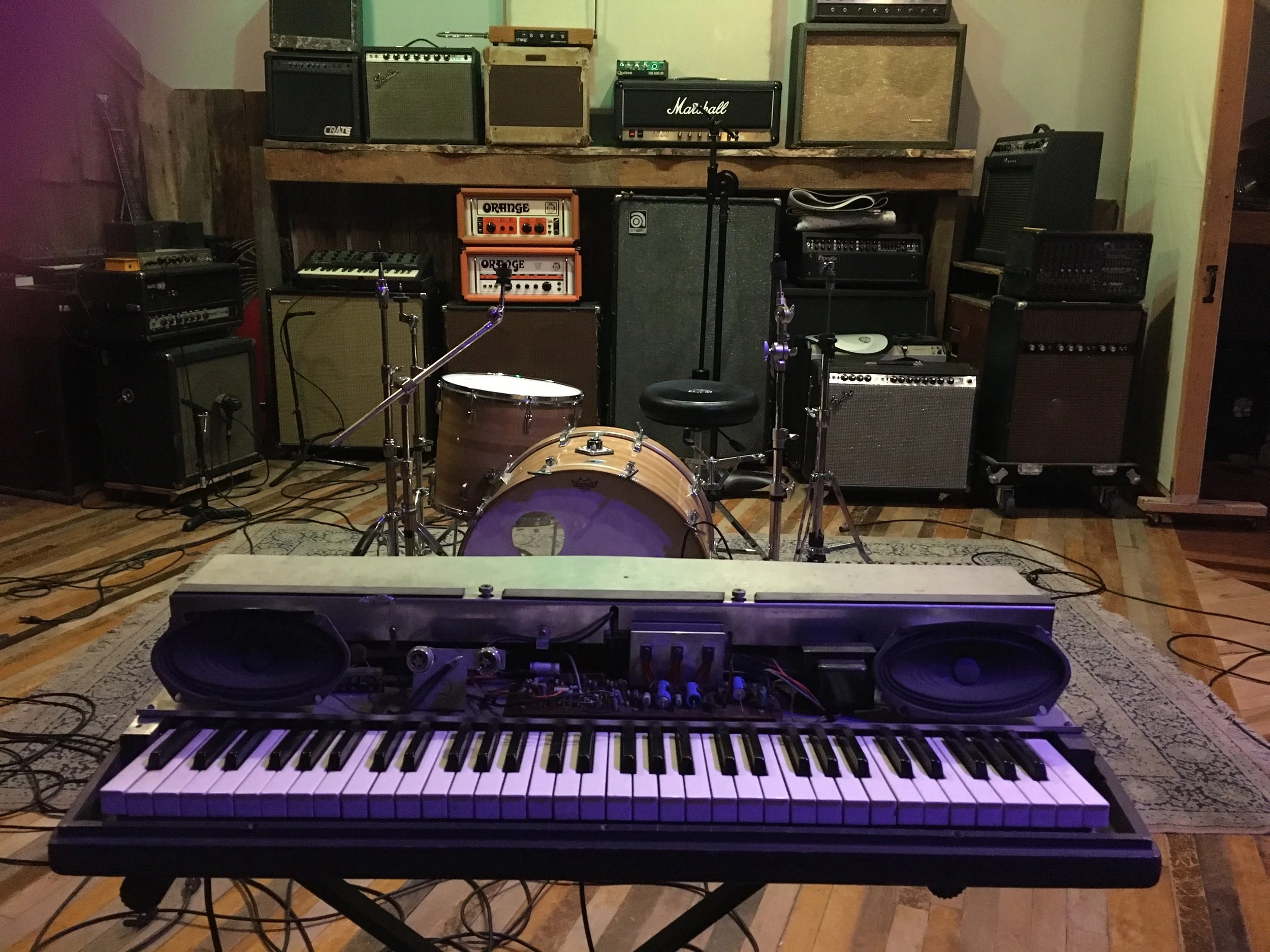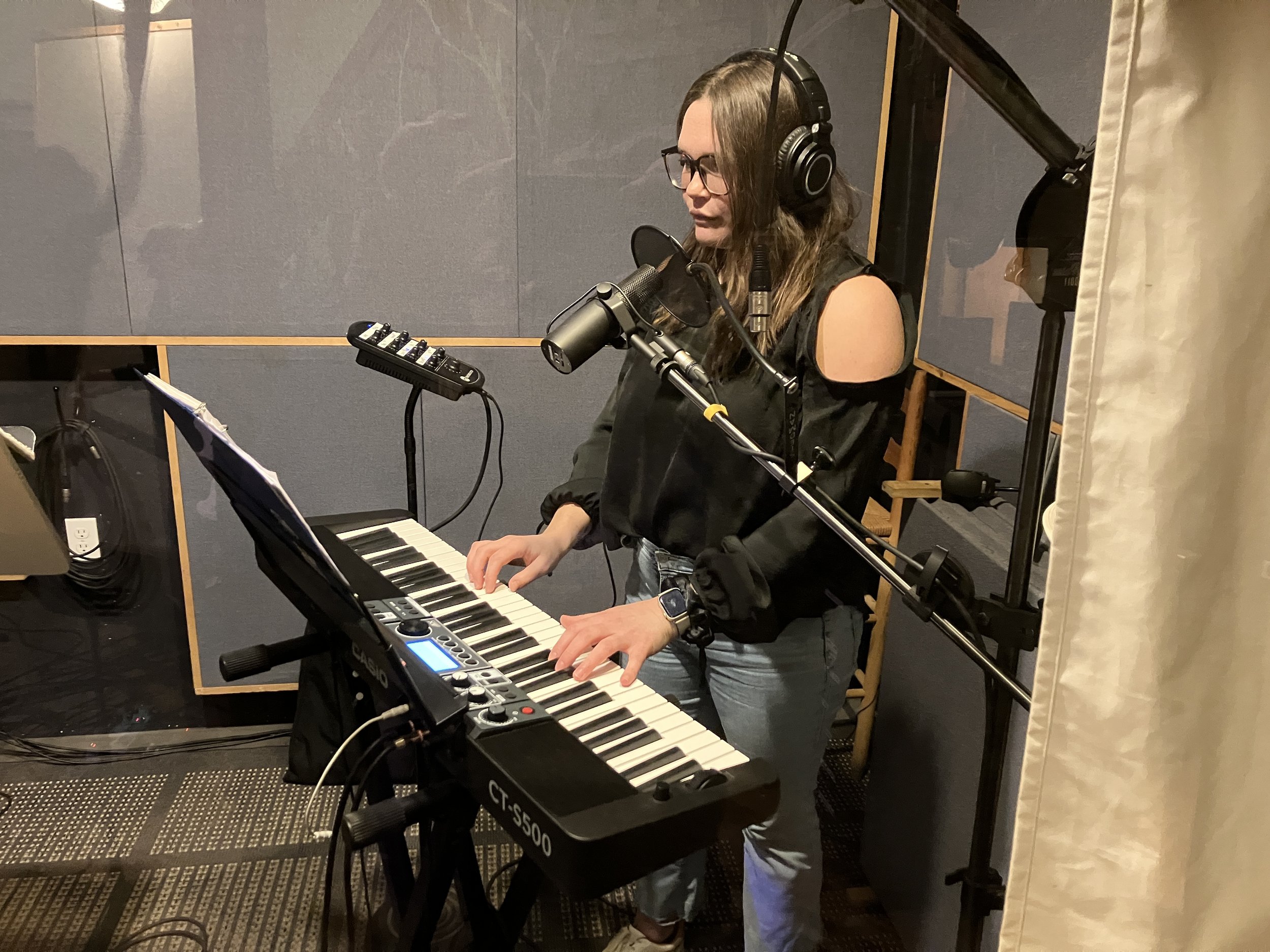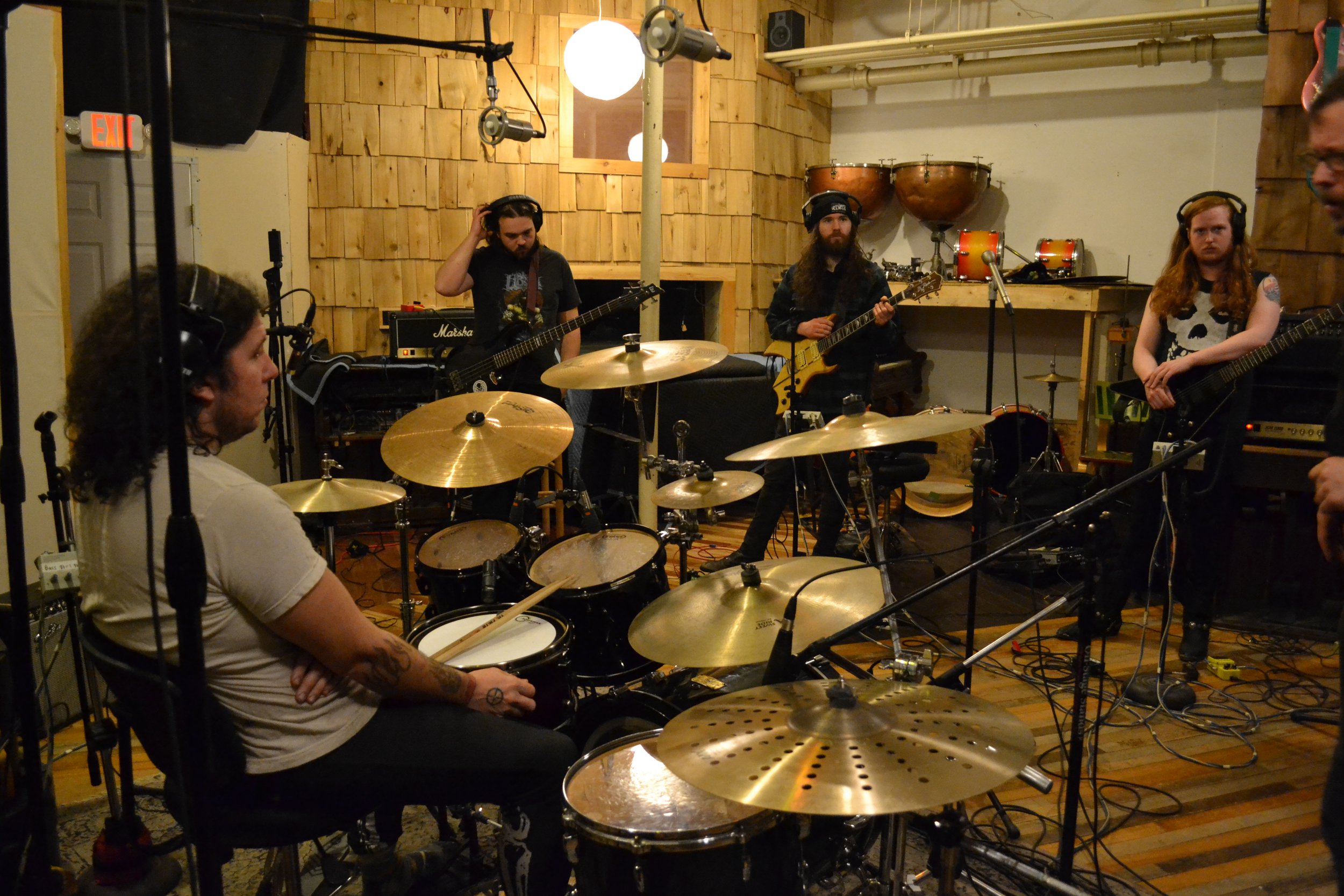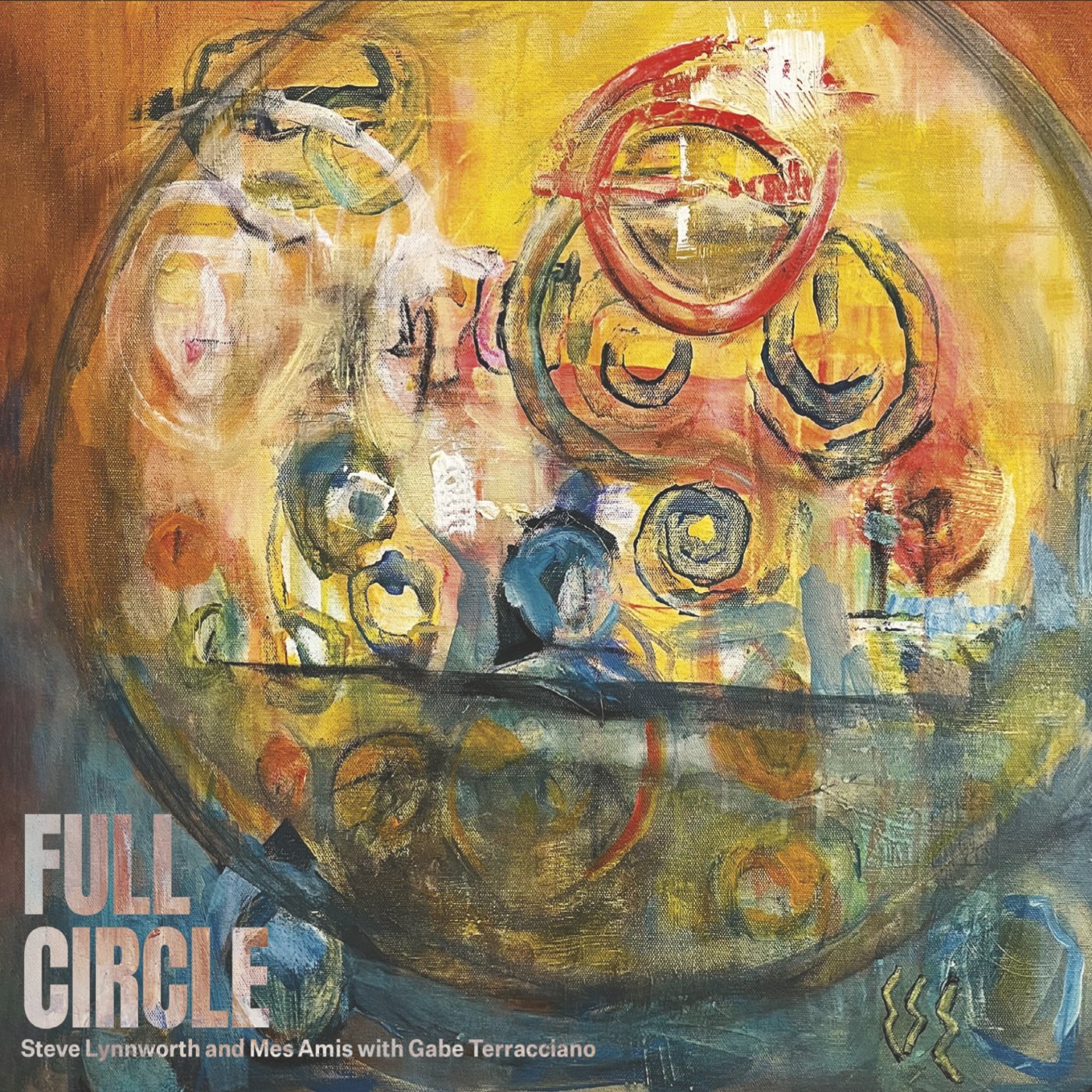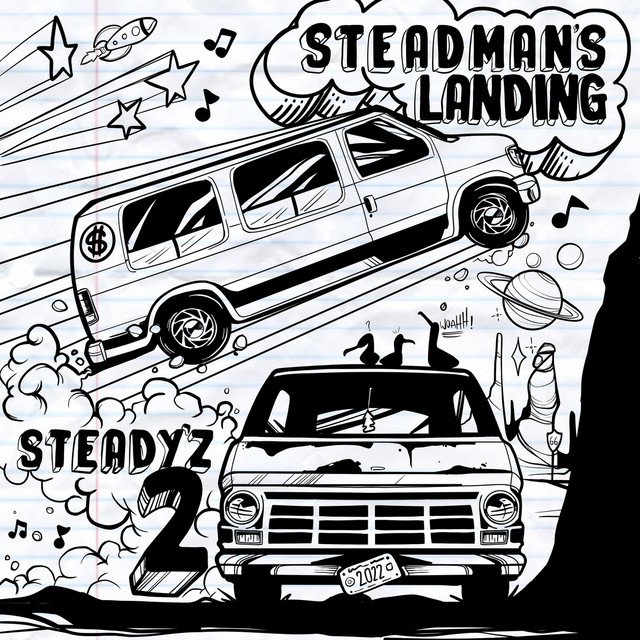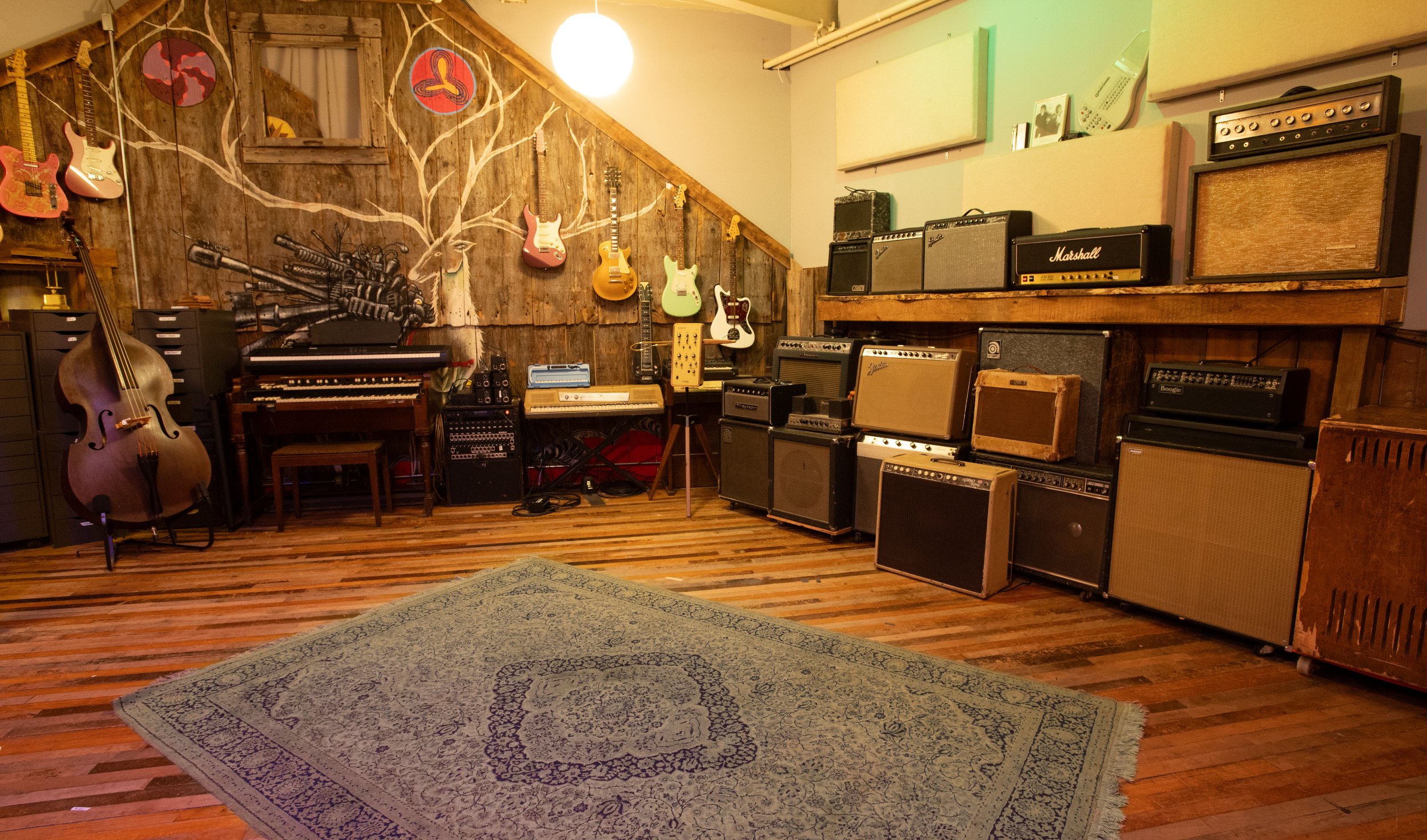
About Acadia
-

Jason Phelps
Co-Owner, Engineer
Jason has spent his entire life immersed in all aspects of a huge variety of music — and has honed keen perspective on music from both the stage/performance side and the technical side. Known as a top-flight flatpick guitar/mandolin player and celebrated electric guitar improviser and vocalist, Jason has helped establish a lasting legacy of musical instruction through the 317 Main Community Music Center (of which he was a founder). Through his deep understanding of audio as both a recording and live sound engineer and engineer/owner/producer at Acadia Recording Company, Jason brings his obvious love for music to bear on any project he is involved in. Listen to his Working Class Audio interview here.
-

Todd Hutchisen
Co-Owner, Engineer
Todd has been consumed by music since he was very young. He is a multi-instrumentalist who has extensive experience in theater, traditional singing groups, and jazz bands. He has played in national touring bands of many different styles, and currently plays guitar and sings in the shoegaze/dreampop band, Crystal Canyon. He holds a BFA in Jazz performance with a concentration in Voice and Composition. His knowledge of the inner workings of gear and how it operates is a vital resource for our local scene and for Acadia Recording Co. He was born and bred in western Maine and has been a staple in the music scene for close to 30 years. He started working at Acadia Recording Co. in 2004 as a freelance engineer, and then bought the business in 2011. He has been recording and making records since 1992 and is well versed in a huge plethora of styles and genres of music from all decades. Todd has a very natural approach to making records and is sure that the music always is the focus. Listen to his Working Class Audio interview here.
-

Alice Anderson
Engineer, Studio Manager
Alice has been with Acadia since 2015 . She grew up singing in a world-touring childrens choir, and playing saxophone through high school, and then parted ways with music until she ended up in Portland and connected to Acadia. Since then she has been honing her engineering skills and currently heads up our VO, Podcast, and Audiobook sessions. She also solders guitar effects pedals for Tru-Fi Pedals.
Our Studio Space
Live Room
-
26 x 26
Reclaimed Barn Wood
Sight Lines with 4 surrounding iso booths
Gear List
Control Room
-
32 Channel SSL Origin Analog Console
48 Channels Lynx A/D converters
Dutch & Dutch 8c Studio Monitors
Protools Ultimate HDX system
UAD 2 Satellite Octo
UAD 2 Satellite Quad
Hear Technologies Hearback personal mixers (8 sets)Studer A80 MKIV 2” 24 Track Recorder
Isolation Booths
-
All booths have sight lines into the main live room.
Iso A (pictured): 9.5’ x 7’ + large window into live room and window sight line to Iso B. Big enough for full size drum kit.
Iso B: 10’ x4’ sight line to Iso A and live room
Iso C: 12’ x 5.5’ sight line to live room, also houses 1950s Event Records vintage studio
Iso D: 9’ x 5.5’ sight line to live room
Take a Listen >>
From time to time, we'll post clips from recent recording and mixing projects. Check out the playlist to sample some of our recent work:
FAQs
-
Here are a few of our best practices:
Be prepared— do you know the total number of songs you are looking to record? Do you know the instrumentation for each song? Can you play the songs at a consistent tempo or to a click track?
Are your instruments ready? Have you recently had your guitar restrung and setup? Do you have fresh drum heads? New sticks?
If you are adding any pre-recorded material do you have hi-res WAV files shared with your engineer in advance of the session?
Do you have a plan for feeding yourself
-
Pre Production is the process of gathering and recording demos for a collection of songs. This collection generally gets whittled down to the strongest group tailored to the format for the release. This process is a critical step in making a great record or EP, and takes into account the tempo, key, and structure of the songs, and may be when an outsider producer becomes involved. The end goal is making sure that the release can be as solid as possible. Remember that the more planning and work done outside of the studio will come back ten fold when it comes time to start recording in the studio.
Recording or tracking is the process of capturing the best performance and desired tones from all instruments. Often in a full-band context we first focus on “basics,” or making sure the drums and bass are locked in, and then we can overdub guitars, vocals, and any additional instrumentation to those tracks. When instruments are properly setup and preproduction has been completed then it really comes down to making sure that the vibe of the song is achieved. There are a lot of approaches to achieve this process, and the workflow for tracking is usually decided case-by-case depending on instrumentation, genre, and other stylistic needs for the songs.
Mixing is the process of assembling and balancing all the elements (instruments or tracks) together and getting them ready to present them in the vision of the artist or band. This process sometimes relies on EQing, dynamic control, time based effects and in some cases re-amping certain signals in order to achieve the desired result. This process is the most artistic and fun step of making a record. Most modern music is mixed in stereo and in Dolby Atmos, whereas vintage, era-specific music may be mixed in mono. These are all solid formats and sometimes this becomes a stylistic choice depending on the vision of the artist. There are no wrong answers in this process.
Mastering is the last step, and is focused on optimizing the mix to translate to the final format(s) (Vinyl, digital streaming, CDs, etc) with a consistent and balanced volume and sonic spectrum from platform to platform. This is also the step when we determine the sequence order for songs, time between tracks, Metadata is embedded, and overall volume continuity between songs gets addressed. This is a very very important step. We don’t master at Acadia, but work closely with Pat Keane Mastering, who runs his studio next door to us. Think of this like the process of framing a painting. The correct frame really presents the painting the best that it can without getting noticed, whereas a painting with an incorrect frame usually destroys the presentation and gets noticed sometimes more than the painting itself.
-
We have an extensive range of well-curated gear that’s over 10 years in the making. Our Gear Page lists equipment available for sessions including our mic locker, a range of Vintage and Modern amps, effects pedals, Drum kits, keyboards, synths, and guitars.
-
Food and drink are welcome in the studio. Acadia has a small kitchenette with a mini refrigerator, induction burner, toaster oven, crockpot, microwave, and coffee & tea maker. You are welcome to bring and prepare food for your session, or you can purchase food close-by. Acadia is minutes from Trader Joes, Whole Foods, Hannafords, and also restaurants including Chipotle, Wilson County BBQ, Leavitt and Sons Deli, Bayside Bowl, and Coals Pizza.
-
There is a permitted parking lot with an entrance on Kennebec Street— please ask us for a parking pass to park in that lot for free. You can also park street-side on Hanover Street.
-
You need to make sure you have the appropriate license, and have purchased the beat in advance. If you purchased beats from some place like beatstars.com you should have the option to download hi-res WAV files. We would prefer to work with stems, an WAVs at a minimum resolution of 24-bit/48KhZ
-
As of January 2024, a full day lockout for a band is $750. We define a day as a good amount of time in which you, your band, and the engineer feel comfortable working. Most days start at 9am and run until 5 or 6pm. We charge by the day for your convenience, so you won’t need to watch the clock the whole time and we don’t have to charge an additional “lockout fee” when you use more than one day in a row. We also book hourly with a two-hour minimum for $100/hr.
-
Acadia accepts cash, checks, debit/credit cards, Pay Pal, or Venmo. Cash and checks are preferred. You should arrive at the studio with the means to pay for your session. For multi-day sessions, payment at the end of the consecutive blocked out dates is fine. Unless other arrangements are made in advance, all sessions must be paid in full before files are released.
-
No. Check out Sun Tiki for space rentals, or Grime Studios.
-
Please. No early birds. We would like you to arrive promptly at the time indicated for your session start, typically 9am. Our staff needs time to set up and breakdown between sessions.
-
Yes we do! We have a Dolby Atmos certified mix/mastering room at the studio. We can remix pre-recorded material, as well as build an Atmos mix from scratch using stems. We can use the stereo mix as a template or get as nuanced as we want when mixing in Atmos. The sky is truly the limit with Atmos, and it is quickly becoming an industry-standard.
-
We unfortunately do not have capacity for internships at the moment. We are tight for space and we are a tight ship with multiple sessions a day. That doesn’t allow us enough time to properly teach the skills that we would like our interns to learn.
-
We do as long as our schedule allows us to accommodate all parties involved. It’s best to reach out to us (studio@acadiarecording.com) and see what's available.

Testimonials
